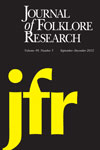
JOURNAL OF FOLKLORE RESEARCH
Scope & Guideline
Illuminating the Intersection of Tradition and Modernity
Introduction
Aims and Scopes
- Folklore and Cultural Practices:
The journal focuses on the study of folklore, including traditional narratives, rituals, and communal practices, highlighting their significance in cultural identity and heritage. - Interdisciplinary Approaches:
It employs interdisciplinary methodologies, integrating perspectives from anthropology, gender studies, queer theory, and cultural studies to provide a comprehensive understanding of folklore. - Community Engagement:
The journal emphasizes the importance of reciprocal relationships between scholars and communities, advocating for public folklore that involves local voices in the research process. - Contemporary Issues in Folklore:
It addresses contemporary themes such as social justice, precarity, and identity politics, exploring how folklore intersects with current societal challenges. - Queer and Marginalized Narratives:
There is a notable focus on queer folklore and narratives from marginalized communities, investigating how these stories challenge dominant cultural discourses.
Trending and Emerging
- Queer Folklore and Intersectionality:
An increasing number of articles explore queer folklore, intersectional identities, and the role of folklore in resistance against heteronormative narratives, highlighting the importance of diverse perspectives in folklore studies. - Folklore and Social Justice:
Themes surrounding social justice, including precarity and community resilience, are gaining traction, reflecting a broader societal concern with equity and representation. - Impact of the COVID-19 Pandemic:
The journal has published several papers addressing the folklore surrounding the COVID-19 pandemic, showcasing how folklore can serve as a tool for coping and understanding during crises. - Digital Folklore and Online Communities:
There is a growing interest in digital folklore and the transformation of folklore practices in online spaces, emphasizing the relevance of folklore in the digital age. - Reciprocal Ethnography and Community Engagement:
Emerging discussions on reciprocal ethnography showcase a trend towards collaborative research that values community input and perspectives, reinforcing the journal's commitment to public folklore.
Declining or Waning
- Traditional Folklore without Contextual Analysis:
There has been a decline in purely descriptive studies of traditional folklore that lack contextual or analytical depth, as the journal increasingly values research that engages with broader social issues. - Exclusively Historical Analysis:
Papers focusing solely on historical analysis of folklore without connecting to contemporary relevance or current sociocultural dynamics are appearing less frequently. - Folklore as Static and Unchanging:
The portrayal of folklore as a fixed entity rather than a dynamic and evolving process is diminishing, as the journal promotes the understanding of folklore as a living practice. - Disconnection from Community Practices:
Research that does not engage with community practices or lacks a participatory approach is becoming less prominent, reflecting a trend towards more collaborative scholarship. - Overemphasis on Canonical Texts:
There is a noticeable shift away from an overemphasis on canonical folklore texts, as the journal seeks to amplify diverse voices and contemporary narratives.
Similar Journals

Camino Real-Estudios de las Hispanidades Norteamericanas
Advancing Interdisciplinary Dialogue on Hispanic InfluencesCamino Real-Estudios de las Hispanidades Norteamericanas is an esteemed journal published by the Universidad de Alcalá, Instituto Franklin de Investigación Norteamericanos, focusing on the interdisciplinary study of North American Hispanic studies. With a dedicated mission to advance scholarship in this emerging field, the journal serves as a crucial platform for researchers, academics, and students interested in exploring the cultural, historical, and social dynamics of Hispanic populations in North America. While the journal does not currently operate under an Open Access model, it is committed to rigorous peer review and upholding academic standards that are essential for quality research dissemination. Situated in Alcalá de Henares, Spain, this journal not only contributes to the understanding of Hispanic influences in North American contexts but also strengthens the dialogue between diverse scholarly communities, making it a valuable resource for anyone engaged in this vital area of study.

Revista de Etnografie si Folclor-Journal of Ethnography and Folklore
Advancing Scholarship in Anthropology and FolkloreRevista de Etnografie si Folclor-Journal of Ethnography and Folklore, an esteemed publication by EDITURA ACAD ROMANE, serves as a vital platform for the dissemination of research and scholarship in the fields of anthropology and cultural studies. Established in Romania, this journal has committed itself to exploring the rich tapestry of ethnographic practices and folklore traditions, favoring interdisciplinary approaches that illuminate the diverse cultural heritage of societies. With an ISSN of 0034-8198, the journal has been instrumental in fostering academic dialogue and engaging researchers, professionals, and students alike. Though currently classified in the Q4 category of both anthropology and cultural studies, its continued growth from 2014 to 2024 signals an evolving contribution to understanding cultural dynamics. Accessible via traditional publication means, the journal encourages contributions that deepen the understanding of ethnographic methodologies and cultural narratives, thereby enriching the academic landscape.

International Communication of Chinese Culture
Illuminating the Impact of Chinese Culture Worldwide.International Communication of Chinese Culture is a distinguished journal published by SPRINGER NATURE, dedicated to exploring the multifaceted exchanges and interactions of Chinese culture within the global context. With an ISSN of 2197-4233 and an E-ISSN of 2197-4241, this journal aims to provide a comprehensive platform for researchers, professionals, and students to engage with innovative ideas and methodologies that bridge cultural boundaries. Although it operates on a unique access model, the journal's emphasis on scholarly rigor ensures valuable contributions from esteemed academics in the field. Covering topics such as cultural diplomacy, intercultural communication, and the impact of digital media on cultural exchange, the journal plays a pivotal role in fostering a deeper understanding of Chinese culture's influence worldwide. Join the discourse and contribute to the vibrant research landscape surrounding one of the world's oldest civilizations.
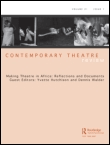
CONTEMPORARY THEATRE REVIEW
Bridging Theory and Practice in Modern TheatreCONTEMPORARY THEATRE REVIEW is a leading journal published by Taylor & Francis Ltd, focusing on the dynamic intersections of theatre, performance studies, and contemporary visual arts. With a Q2 ranking in both Visual Arts and Performing Arts, this journal has established itself as a significant platform for scholarly discourse and critical analysis since its inception in 1992, particularly from 1994 through 2024. Researchers, practitioners, and students engaging with the evolving landscape of theatre will find this journal an essential resource for innovative research, reviews, and theoretical papers. The journal invites contributions that explore diverse themes in contemporary performance, ensuring it remains at the forefront of the academic and professional dialogue within the performing arts community.
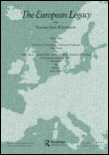
European Legacy-Toward New Paradigms
Navigating the Complexities of Cultural HeritageEuropean Legacy-Toward New Paradigms is a distinguished academic journal published by Routledge Journals, Taylor & Francis Ltd, focusing on interdisciplinary approaches to cultural studies, history, and philosophy. With an ISSN of 1084-8770 and an E-ISSN of 1470-1316, this journal has made significant contributions to the understanding of European heritage and its impact on contemporary thought and society since its inception in 2001. It currently holds a Q3 ranking in Cultural Studies, History, and Philosophy, reflecting its relevance and scholarly impact within the academic community. Although not an Open Access journal, European Legacy provides valuable insights and research findings through its carefully curated articles, making it an essential resource for researchers, professionals, and students alike. The journal's commitment to exploring new paradigms fosters critical dialogue and encourages innovative perspectives on Europe’s complex legacies, thereby positioning itself as a vital platform for ongoing academic discourse.

Cuadernos de Literatura del Caribe e Hispanoamerica
Advancing Scholarship in Vibrant Literary NarrativesCuadernos de Literatura del Caribe e Hispanoamerica is a prestigious academic journal published by UNIV ATLANTICO, FAC CIENCIAS HUMANAS, dedicated to advancing scholarly discourse in the field of Caribbean and Hispanic literature. With a focus on the rich cultural narratives and literary expressions that emerge from this vibrant region, the journal aims to serve as a vital resource for researchers, professionals, and students alike. It primarily publishes original research articles, critical essays, and book reviews, contributing to the understanding of the diverse literary landscapes of the Caribbean and Hispanic world. Although it currently does not offer Open Access, the journal's commitment to quality scholarship is reflected in its comprehensive editorial standards and rigorous peer-review process. Positioned within a global context, it serves as an invaluable platform for interdisciplinary dialogue and research dissemination, fostering a deeper appreciation of the literary heritage and contemporary issues faced by these communities.

CHASQUI-REVISTA DE LITERATURA LATINOAMERICANA
Advancing Scholarship in Latin American Literature and CultureCHASQUI-REVISTA DE LITERATURA LATINOAMERICANA is an esteemed academic journal published by Arizona State University, dedicated to the exploration and dissemination of research in the fields of Literature and Literary Theory and Cultural Studies. With an ISSN of 0145-8973 and an E-ISSN of 2327-4247, the journal serves as a critical platform for scholars examining the complexities of Latin American literature from diverse perspectives. Notably ranked in the second quartile in its field as of 2023, CHASQUI reflects its commitment to quality and impactful scholarship. The journal operates within a two-year converged publication cycle, ensuring it remains at the forefront of contemporary discussions and innovations in its disciplines. Although there are no open access options, researchers and students alike will find valuable insights within its pages, bolstered by a robust academic community. Through its dedication to fostering literary scholarship, CHASQUI plays an integral role in advancing the understanding of Latin American narratives and cultural expressions.

Folklore-Electronic Journal of Folklore
Advancing Knowledge in Folklore and Cultural StudiesFolklore-Electronic Journal of Folklore is a pioneering academic platform dedicated to the expansive field of folklore studies, published by the esteemed Estonian Literary Museum. With an ISSN of 1406-0957 and an E-ISSN of 1406-0949, this journal has established itself as a notable contributor to the scholarship on cultural expressions and traditions, particularly in the context of Estonia and beyond. Operating under an open access model, the journal aims to disseminate high-quality research that illuminates the rich tapestry of human folklore, mythology, and cultural practices across various societies. Recognized for its impact, it has been categorized in the Q3 quartile for Anthropology and Q2 for Cultural Studies in 2023, reflecting its relevance and rigorous academic standards. By ranking #436 out of 1304 in Cultural Studies and #267 out of 502 in Anthropology according to Scopus, the journal serves as a vital resource for researchers, professionals, and students interested in the interplay between folklore and contemporary societal issues. Overall, the Folklore-Electronic Journal of Folklore not only promotes scholarly exchange but also invites contributions that push the boundaries of traditional folklore research.
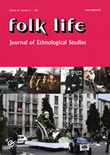
Folk Life-Journal of Ethnological Studies
Celebrating Cultural Diversity through Rigorous Scholarship.Welcome to the Folk Life-Journal of Ethnological Studies, a distinguished publication devoted to exploring the rich tapestry of human culture and ethnological research. Published by Routledge Journals, Taylor & Francis Ltd, this journal serves as an essential platform for scholars and practitioners within the fields of Anthropology, Arts and Humanities, and Cultural Studies. With a publication history stretching back to 1963, the journal has become a valuable resource for disseminating innovative and interdisciplinary research, contributing to a deeper understanding of diverse cultural phenomena. Despite its current quartile rankings of Q4 across multiple categories, 'Folk Life' continues to strive for academic excellence and encourages submissions that challenge existing narratives and offer fresh perspectives. Although not open access, articles published in this journal are rigorously peer-reviewed, ensuring the highest scholarly standards. Researchers, professionals, and students alike will find rigorous and thought-provoking studies within its pages, making Folk Life an important fixture in the academic landscape.
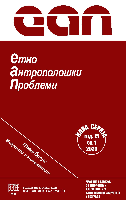
Etnoantropoloski Problemi-Issues in Ethnology and Anthropology
Advancing the discourse in ethnology and anthropology.Etnoantropoloski Problemi-Issues in Ethnology and Anthropology, published by the University of Belgrade, Faculty of Philosophy, is a prestigious open-access journal dedicated to advancing the fields of ethnology and anthropology. With its ISSN 0353-1589 and E-ISSN 2334-8801, the journal has been a crucial platform since 2006, facilitating the dissemination of innovative research and critical discussions among scholars worldwide. As an open-access journal, it ensures that valuable insights and findings are readily accessible, promoting knowledge sharing and collaboration across the academic community. The journal aims to explore and address contemporary issues in cultural studies, social dynamics, and human behavior, emphasizing the relevance of ethnological and anthropological research in understanding our increasingly interconnected world. Researchers, professionals, and students alike will find Etnoantropoloski Problemi an essential resource for staying informed about the latest developments and debates within these dynamic disciplines.